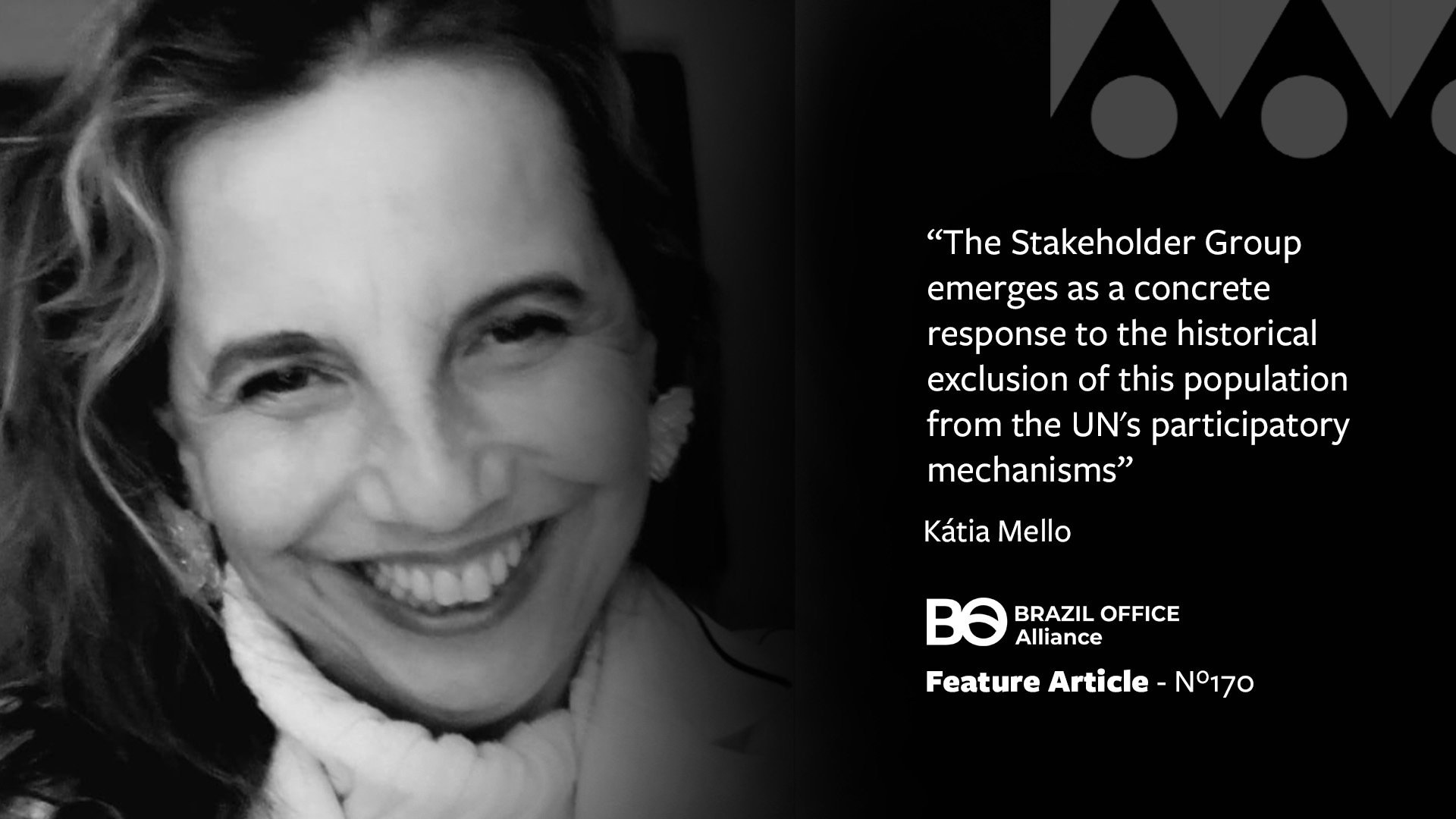The Stakeholder Group of People of African Descent is created at the UN
By Kátia Mello*
The official announcement of the creation of the Stakeholder Group of People of African Descent at the United Nations in May is a historic victory for Geledés-Instituto da Mulher Negra, which initiated this campaign at the UN in September 2023. More than that, it is a victory for all global diasporas, since for the first time, Afro-descendant voices, in an institutionalized way, are included in the participatory structures of the United Nations. In addition to Geledés, the co-presidency (Steering Committee) includes the NGO Criola and UNARC (UN Anti-racism Coalition).
The Main Groups and Other Stakeholders, established during the Earth Summit (Rio-92), are articulation groups between civil society and international organizations. They are responsible for making policy proposals, official statements, and recommendations to UN member states.
Originally, new Major Groups were established at the UN in the following areas: women, children and youth, Indigenous peoples, Non-Governmental Organizations (NGOs), local authorities (subnational governments), workers and unions, business and industry, scientific and technological community, and farmers. Over time, there was an extension to the so-called specific stakeholders, made up of people with disabilities, the elderly, the LGBTQIA+ community, migrants, cooperatives, and now Afro-descendants.
The call for a specific Stakeholder Group for Afro-descendants at the UN represented a strategic shift in the dispute for spaces of influence in global governance structures. In proposing the creation of this group, an organization founded and led by Black women, defended the idea of inserting the racial and reparatory justice agenda at the heart of the formulation and monitoring of the Sustainable Development Goals (SDGs), based precisely on a platform that enables structured exchanges with States, multilateral agencies, and other civil society actors.
Since the group's first public demand in September 2023, Geledés has intensified its efforts in this direction, engaging in partnerships with institutions from different continents that address structural racism and work on the sustainable development agenda. This mobilization required a sophisticated reading of how multilateral systems work and an understanding of the exact role of Major Groups and other Stakeholders as intermediary mechanisms between the different diasporas and UN agencies.
The presence of Geledés' international advisor Letícia Leobet in the session “Perspectives of Major Groups and other Stakeholders: Partnerships for Urgent Transformations and Actions” during the High-Level Political Forum (HLPF) in July 2024 reinforced this position. Her intervention highlighted the urgency of mechanisms that not only include them, but also consider the leading role of Afro-descendant voices in debates on global transformation and intergenerational justice.
This work continued in September 2024, in New York, in parallel with the Future Summit, with the event “Addressing Racism as a Central Issue in the Global Agenda for the Future,” promoted by Geledés. In it, Leobet reiterated once again the need to institutionalize a specific mechanism for the Afro-descendant community. The proposal reflected an implicit criticism of the historical underrepresentation of this group in international decision-making structures, while also pointing out ways to reposition the anti-racist struggle in the context of contemporary global transitions.
From Durban to the UN
Historically, the creation of the Stakeholder Group of People of African Descent refers to an ongoing and arduous anti-racist struggle made explicit during the World Conference against Racism, which took place in Durban, South Africa in 2001. It was at this conference that racism was finally recognized as structural, systemic, and global, and that a reparations agenda was inserted into the international agenda.
At this time of attacks on global multilateralism, the new Stakeholder Group for People of African Descent has emerged to ensure, as a permanent institutional mechanism, that the commitments reinforced two decades ago in Durban are truly implemented within the framework of the 2030 Agenda, the Future Pact, and the development financing agendas, among others.
With the end of the First International Decade for People of African Descent (2015–2024) and the recent proclamation of the Second International Decade (2025–2034) by the UN General Assembly, a new arrangement is emerging as a way to continue the struggle for recognition and justice. Although the previous decade saw important advances in the agendas of the Afro-descendant population, the desires for recognition, justice and development still remain largely unfulfilled. In this context, the Stakeholder Group emerges as a concrete response to the historical exclusion of this population from the UN's participatory mechanisms. Aligned with the spirit and renewed goals for the new decade, the group aims to amplify the voice of Afro-descendants, strengthening their presence and necessary influence in the participation of global debates.
*Kátia Mello is a journalist from Geledés and holds a Master's in African Studies from the University of Birmingham, in the United Kingdom

